As Malaysia grapples with record COVID-19 cases, authorities ramp up mass vaccination to stem the tide
As COVID-19 rages in Southeast Asia, regional governments are racing to roll out their national vaccination programmes. In the third and final part of a series, CNA looks at how Malaysia is banking on a high vaccination rate to tackle the pandemic.
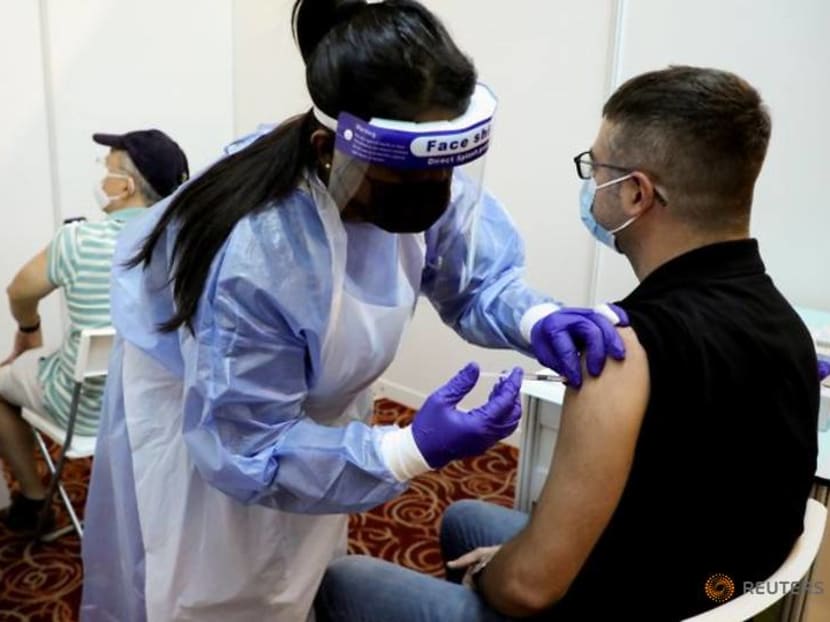
FILE PHOTO: People receive AstraZeneca's COVID-19 vaccine at a vaccination centre in Kuala Lumpur, Malaysia May 5, 2021. REUTERS/Lim Huey Teng
KUALA LUMPUR: Mandy Lam had just sat down to have her dinner one day in early July when she noticed she was given a vaccination appointment on MySejahtera, Malaysia's contact tracing app.
It was 7pm but the appointment was 6pm the same day.
The corporate communications executive immediately put down her utensils and rushed over to the vaccine distribution centre, located about 45 minutes from her house.
“I drove like The Fast and The Furious over to the centre, because I heard it closes around 8pm,” she said with a laugh.
Ms Lam has been checking her MySejahtera a few times a day since registration for vaccination opened to the public in late February this year. She had also tried to snatch a slot when the government rolled out the voluntary opt-in for AstraZeneca vaccines in May, but to no avail.
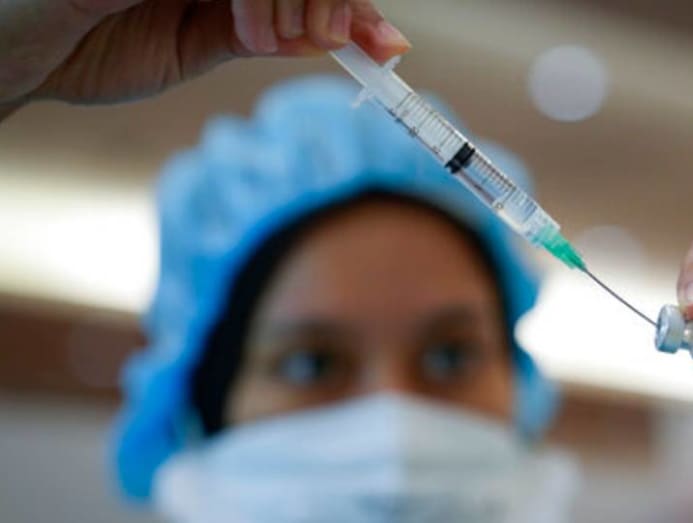
Upon arriving at the vaccination centre, her hands were trembling from the adrenaline rush. She prayed hard that she would be allowed to take her first shot before the centre closed for the day, and she was.
“If I hadn’t rushed over, who knows when I’d be eligible again, maybe next year? Hence I’d rather be late to the appointment, than not even take the chance,” said Ms Lam.
READ: Uneven distribution, bureaucracy hamper Indonesia's COVID-19 national vaccination efforts
Since Malaysia received its first batch of vaccines back in late February, it’s National COVID-19 Immunisation Programme (NCIP) has been gaining steam. NCIP is divided into a number of phases, beginning with immunising the country’s health and security frontliners.
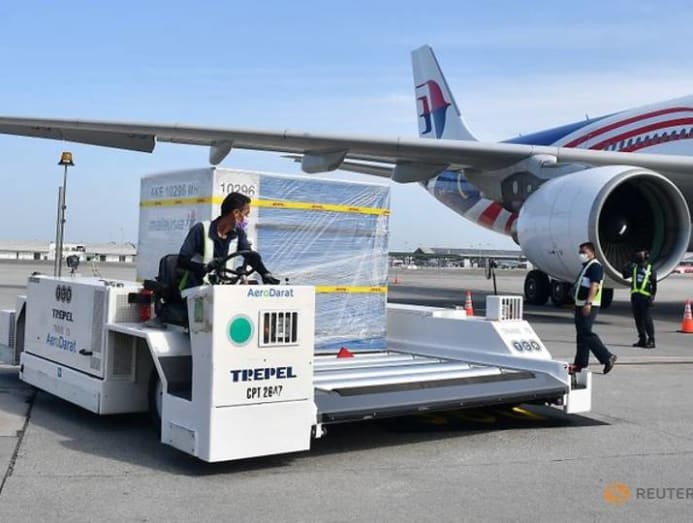
With a steady stream of supplies, vaccination was ramped up across the country. The programme has been breaking daily records in terms of daily doses being administered.
At the same time, however, the situation for Malaysia’s COVID-19 cases has also taken a turn for the worse, with record high infections and deaths being reported.
Increasing the vaccination capacity is the most effective way for Malaysia to get out of the COVID-19 pandemic crisis, Prime Minister Muhyiddin Yassin said in parliament on Monday (Jul 26).
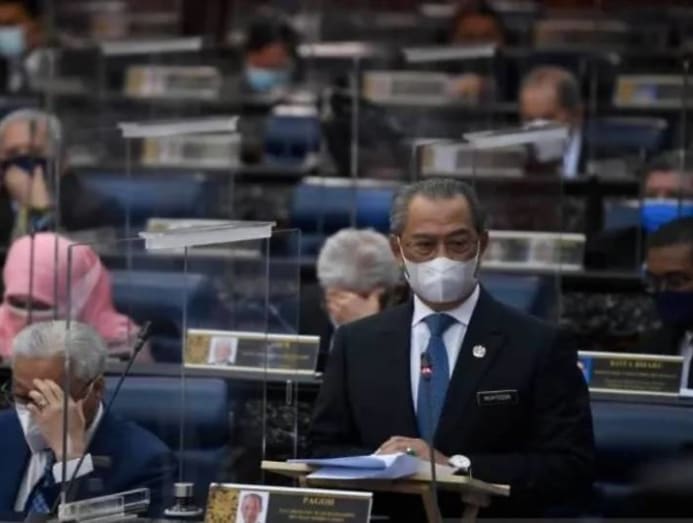
One hundred per cent of adults may be fully vaccinated by October, he added, ahead of the original target of 80 per cent of adults by the first quarter of 2022.
But is vaccination the silver bullet to end Malaysia's crisis? Experts cautioned that while vaccines can be a key tool, other control measures must still be enforced.
VACCINATION DRIVE GAINING TRACTION
On Wednesday, Malaysia hit another record high for new COVID-19 cases with 17,405 infections. The country has over 1.07 million cases so far.
The current record for COVID-19 deaths logged in a single day is 207, which happened both on Monday and Tuesday.
Kuala Lumpur and Selangor have been consistently contributing the bulk of cases. As such, the government launched the "Operation Surge Capacity" to accelerate the vaccination drive in the Klang Valley, with a goal of administering at least one dose for people aged 18 and above by Aug 1.
Currently, Malaysia's national vaccination programme uses Pfizer-BioNTech, AstraZeneca and Sinovac.
The country has also granted conditional approval for emergency use to CanSino, Sinopharm and Janssen, and procured Russian-developed Sputnik V. It will also receive Novavax from the COVAX vaccine sharing programme.
Malaysia has allocated RM5.8 billion (US$1.36 billion) to carry out the immunisation programme, which has procured enough doses to cover 130 per cent of Malaysia's population.
There are currently 2,313 vaccine distribution centres across the country, including private clinics and ambulatory care. In addition, some states and federal territories have also employed mobile vaccine trucks to speed up inoculation, as what happened back in mid-June when four vaccine tracks administered doses to some 7,000 residents in public housing projects in Kuala Lumpur.
READ: People can record COVID-19 vaccination process, says Khairy following claims of improperly administered doses
The COVID-19 Immunisation Task Force (CITF) has announced that walk-in vaccinations for Selangor and Kuala Lumpur can take place from Aug 1 onwards for those who were left out and have not received any appointment date thus far, including those without identity or travel documents.
Coordinating minister for the national immunisation programme Khairy Jamaluddin also announced on Jul 25 that guidelines for illegal immigrants and refugees to receive their COVID-19 vaccines had been approved, and that non-governmental organisations such as the Red Crescent would be involved in the immunisation exercise for such communities.
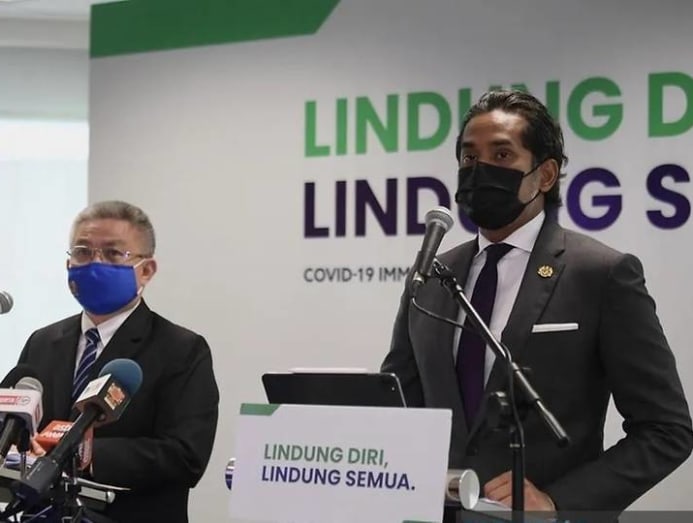
According to Mr Khairy, 38.2 per cent of Malaysia's population, or 12.49 million people, have received at least one dose of vaccine as of Jul 27. From the total, over 5.9 million or 18.1 per cent of population have been fully vaccinated.
For the adult population, 25.2 per cent are fully vaccinated, he added.
Malaysia, which has a population of 32 million, is among the fastest countries to vaccinate its people against COVID-19, said Mr Muhyiddin on Monday.
Public health researcher Lim Chee Han agreed that one would hardly complain about the speed with the current rollout rate, which has been accelerated since early last month following a slow start due to delivery delays.

“In fact, it is faster than the world’s average (13.23 per cent fully vaccinated) and Asia’s average (9.81 per cent),” he said.
On Tuesday, Labuan, the federal territory in East Malaysia, became the first in the country to fully vaccinate 80 per cent of its adult population. It has an adult population of 68,500.
LOW REGISTRATION AND INOCULATION RATE IN SOME STATES
The vaccination drive is not without challenges.
In some parts of the country, "anti-vax" movement and vaccine hesitancy are a concern.
Dr Lim said that even before COVID-19, anti-vaccination beliefs cut across different socio-economic and education levels and the urban-rural divide.
“So I do not think that vaccine hesitancy presents a clear baseline pattern of distribution, perhaps except slightly more obvious for some religious groups in parts of the north and east coast of Peninsular Malaysia on the claim of vaccines’ halal-ness,” he added, pointing out that the northern state of Kedah used to have the worst child immunisation rates prior to the pandemic.
Vaccine registration in east coast states Kelantan and Terengganu are at 62.5 per cent and 76.7 per cent respectively, while Kedah's stands at 77.9 per cent, as of Jul 27.
They are lagging behind Selangor and Negeri Sembilan as well as the federal territories of Kuala Lumpur and Putrajaya, where 100 per cent of eligible adults have registered to be vaccinated.
Sabah, meanwhile, has the lowest registration rate among all states. Only 40.5 per cent or 1.12 million people of its eligible adult population registered for the programme.
READ: What is ivermectin and why Malaysia is in no rush to approve it for COVID-19 treatment
Speaking to CNA on Jul 21, Sabah State Minister for Housing and Local Government Masidi Manjun said the low registration was due to the Borneon state's geography and infrastructure, but the registration number is not the state government's main concern.
“Due to limited Internet penetration in the rural areas, many people prefer to do manual registration,” he explained.
The state minister added that there is an immunisation task force in every state district, coordinated by the district officer to ensure citizen receive their vaccines.
As for inoculation rate, Selangor and Kuala Lumpur have administered the highest number of first doses, at 2.66 million and 2.079 million respectively. By contrast, Kelantan and Sabah have only administered about 360,000 and 650,000 first shots as of Jul 25.
READ: Malaysia government contract doctors frustrated over lack of job security, benefits as COVID-19 drags on
Mr Masidi told CNA that per ratio to population, Sabah was the lowest recipient of vaccines among the states in Malaysia. The Sabah Health Department’s inoculation capacity could hit 50,000 doses daily, but was doing an average of 12,000 doses to spread out the doses until new supplies were delivered, he said last week.
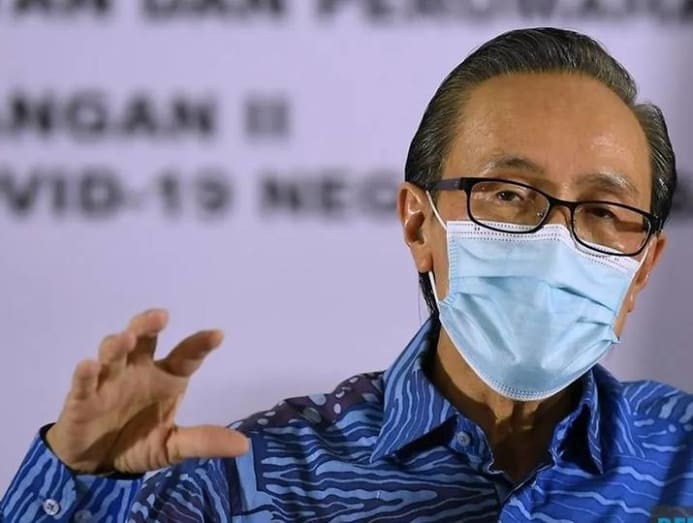
“We would prefer to do walk-in vaccinations - register and get inoculated, and the state has made available buildings to be turned into vaccination centres. In fact, many can be used immediately,” he said.
Research assistant Sabrina Melisa Aripen was among the Sabahans who were still waiting for an appointment.
She signed up as soon as the vaccination registration function was added to the MySejahtera app, and the wait has been very frustrating. Her parents, who are 82 and 76, as well as her friends with special needs or comorbidities have not received their appointments yet as well.
“But I see young, healthy and able-bodied people who aren’t frontliners sharing that they’ve received their doses, how is this fair?” Ms Sabrina said.
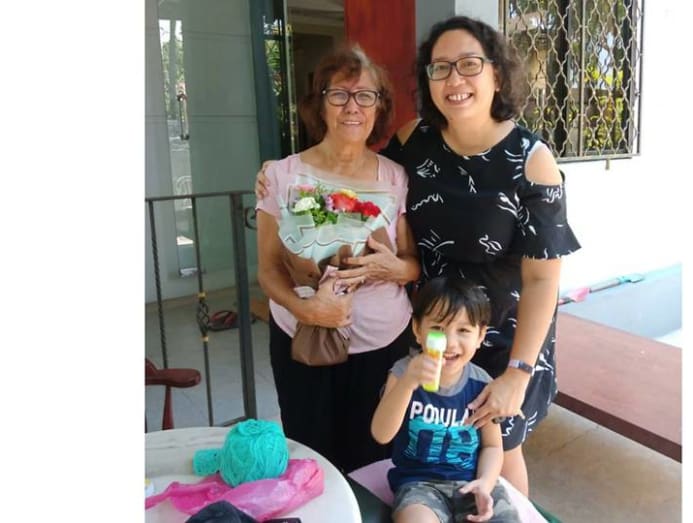
She had assumed that her turn would come quickly when the government said vaccines would be given in phases, since she is in her 40s. But she was still not vaccinated when the government announced that from May onwards, those above 18 would soon receive their appointments.
With questions on the immunisation drive’s efficiency and the selection process went unanswered, Ms Sabrina felt overlooked.
Her predicament might soon be relieved with more vaccines being delivered to Sabah.
Mr Masidi announced on Jul 21 that the state had received a total of 747, 980 doses (including 152,100 delivered previously) and another 308,990 doses were scheduled to arrive the following week.
With the arrival, daily inoculation could be ramped up. State Health Director Rose Nani Mudin said on the same day that Sabah could reach 40,000 daily jabs, from 30,000.
READ: Commentary - What’s behind no-shows in vaccination centres across Malaysia?
VACCINES NOT A SILVER BULLET
For those who have already received both doses of their vaccination, some respite from the varying levels of lockdown might be on the horizon.
Earlier on Jul 24, Mr Muhyiddin said those fully vaccinated might be able to enjoy privileges such as being able to participate in sports and social activities, and even dine-ins, as “breathing space”.
Malaysians have been enduring lockdowns in one form or another since the first movement control order (MCO) was imposed on Mar 18 last year.
READ: Thailand's COVID-19 national vaccination programme hit by supply shortage, uncertain delivery schedule
The appearance of the Delta variant in Sarawak, with 93 cases detected up until Jul 25, and in other states is also an impetus to vaccinate as many eligible people as possible.
In a virtual media presser, Health Ministry director-general Noor Hisham Abdullah urged Malaysians to get their jabs, stating that those inoculated were much less infectious, and unlikely to get as sick.
Dr Noor Hisham pointed out that although 2,779 healthcare workers had been infected after they were fully vaccinated, most were category one (asymptomatic) or two (light symptoms).
Meanwhile, there were only three patients each in categories three (symptomatic with lung infection) and four (requiring oxygen assistance).
However, vaccination drive is no “silver bullet” for Malaysia’s case numbers, Dr Lim cautioned.
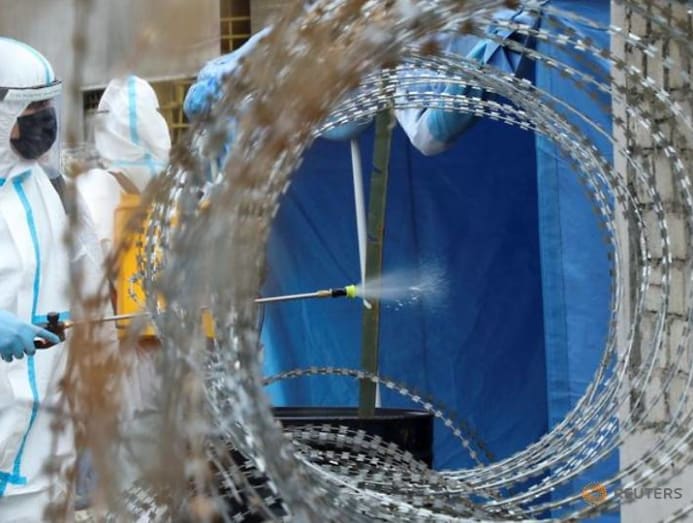
“From a public health and life sciences point of view, the current vaccines we have are not ‘silver bullets’, they cannot eliminate disease transmission, though they are expected to significantly reduce the number of cases and need for hospitalisation,” he explained.
Vaccination’s positive effect had yet to be observed as a large proportion of Malaysia’s populace was unvaccinated, and the number of fully-vaccinated people was still too small to significantly reduce the rising trend of local COVID-19 transmissions in certain areas, he added.
“Though currently the government seems like it's running out of ideas, and it seems that the vaccination effort is their only effective response to the current predicament, many states will only achieve at least a 50 per cent fully vaccinated population by September,” he said.
And even then, Dr Lim added, a 50 per cent fully-vaccinated population was not a magic number to prevent COVID-19 from spreading. If lockdown measures stayed unchanged, more cases could be expected, especially fatalities, he cautioned.
For public health and health economics researcher Nazihah Muhamad Noor at Khazanah Research Institute, vaccines can be a key tool in ending the pandemic, but with provisos.
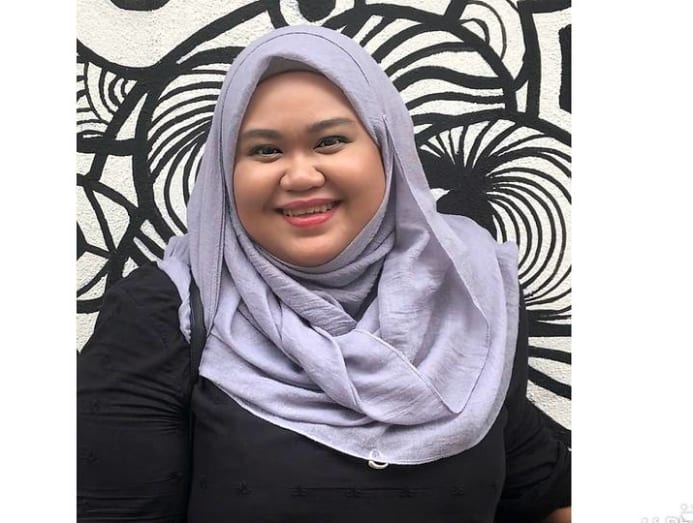
“But only if we can vaccinate the vast majority of the global population, not just Malaysia’s, quickly enough,” she observed.
“Global vaccine inequity has left the majority of the world population vulnerable and has allowed the virus to replicate in populations that are still susceptible, contributing to the emergence of new variants that can spread and prolong the pandemic everywhere, even in countries with advanced vaccination programmes,” Ms Nazihah pointed out.
As such, other pandemic controls such as testing, contact tracing, quarantine and masks still needed to be widely practised, she added.
Read this story in Bahasa Melayu here.
BOOKMARK THIS: Our comprehensive coverage of the COVID-19 pandemic and its developments
Download our app or subscribe to our Telegram channel for the latest updates on the coronavirus outbreak: https://cna.asia/telegram





